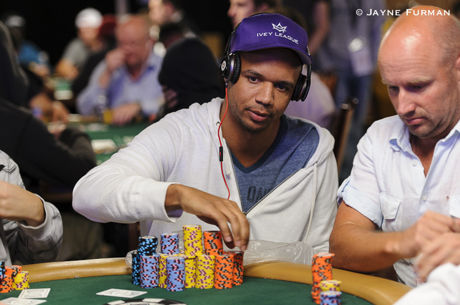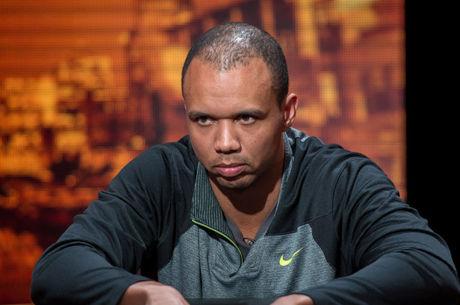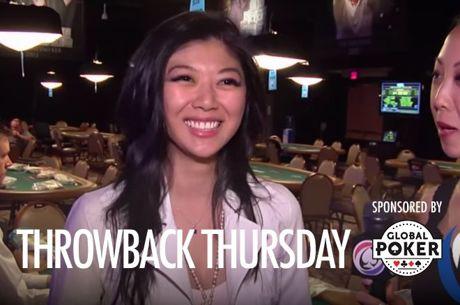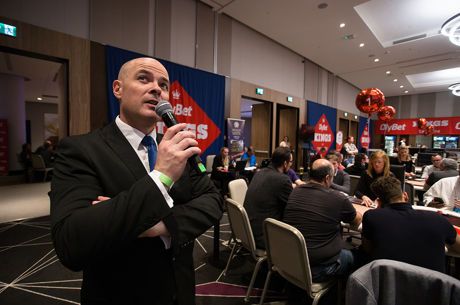Gemaco Playing Cards Off the Hook in Borgata Ivey Edge-Sorting Debacle
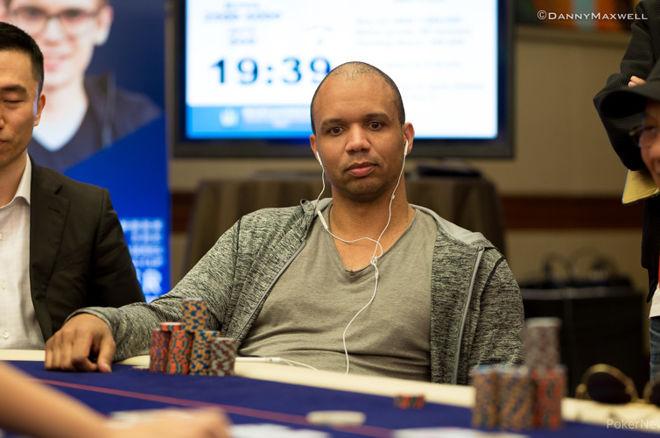
The latest on the ongoing Phil Ivey edge-sorting debacle comes in the form of a ruling on Borgata’s attempt to sue Kansas City-based playing card company Gemaco Inc. On Monday, U.S. District Court Judge Noel Hillman dismissed five of the six counts that Borgata’s parent company Marina District Development Corp. brought against Gemaco, leaving only a possibility of Borgata to sue the card company for a trivial $26.88, the cost of replacing the cards.
One may wonder why Atlantic City’s Borgata would go after the card manufacturer after getting a favorable ruling in which Ivey and Cheung Yin Sun were ordered to return $10.12 million to the casino. As it turns out, their case against Gemaco was part of the original suit as Borgata named the card company as a co-defendant in their case against Ivey and Sun.
After Judge Hillman ruled that Ivey and Sun must return all Borgata winnings from their 2012 casino visits including the $9.6 million from Baccarat and other winnings from craps, the case against Gemaco remained a loose end to be tied up. Indeed, Hillman determined that it must be resolved before Ivey and Sun could pursue their appeal to a higher court.
Dismissing the Case Against Gemaco
In their case, Borgata fingered Gemaco’s playing cards and their minute asymmetries as a proximate cause in the casino’s $9.6 million loss during the Baccarat sessions. Though common knowledge at this point that Ivey and his partner did in fact use these manufactured irregularities to anticipate cards and play accordingly, they were not the only factor in the massive winnings of the duo.
In the 27-page accompanying opinion, Judge Hillman dismissed Borgata’s claim of negligence by the card company in the matter and emphasized that the cards played only a minor role in a grand scheme.
“Thus, it is not Gemaco’s cards that were the ‘but for’ cause of Borgata’s losses, but rather all the subsequent required elements requested by Ivey and agreed to by Borgata, each a required and integral part, which together caused Borgata’s losses. It is true that the scheme would not have worked without asymmetrical cards," the judge wrote. "They were necessary for the scheme. But they were equally insufficient. Out of the box, asymmetrical cards are symmetrical until strategically turned and maintained in that orientation. In that sense, it was Borgata’s acquiescence in Ivey’s accommodations that were the but for cause of Borgata’s losses.”
"Out of the box, asymmetrical cards are symmetrical until strategically turned and maintained in that orientation."
The breach of express warrant claim that Judge Hillman left open for Borgata to pursue, should they choose to do so, is a comically inconsequential one.
“If, after trial, Borgata is successful on its breach of warranty claims against Gemaco, its recovery would be limited to $26.88. The Court wonders whether, under such circumstances, the game is worth the candle.”
Hillman gave Borgata three options regarding the next course of action:
"The Court can (1) proceed to trial on Borgata’s breach of warranty claims, (2) stay Borgata’s claims against Gemaco and certify as final Borgata’s judgment against Ivey and Sun pursuant to Rule 54(b) so that Ivey and Sun’s appeal may proceed, or (3) afford Borgata and Gemaco a period of time to enter into a private resolution of Borgata’s claims against Gemaco.”
Borgata and Gemaco were given 15 days to notify the court of how they would like to proceed, but it appears that this part of the case will be closed in the near future. As for Ivey's appeal against the Borgata, that remains a possibility on the horizon, despite having lost his other Supreme Court Appeal against U.K.'s Crockfords Club.
In this Series
- 1 Ivey Claims He Used "Edge Sorting" in £7.8 Million Lawsuit With Crockfords
- 2 Top 10 Stories of 2013: #10, Ivey, Kagawa, Smith, and Others Face Legal Trouble
- 3 Borgata Files $9.6 Million Lawsuit Against Phil Ivey for Alleged Baccarat Cheating
- 4 Details Emerge in Borgata's Lawsuit Against Phil Ivey
- 5 Sorting Out the Law Behind Phil Ivey's Edge Sorting Debacle at Borgata
- 6 Phil Ivey Files Motion to Dismiss Borgata Lawsuit, Claims Win Was "All Skill"
- 7 Ivey's Edge-Sorting Accomplice, Cheng Yin Sun, Files Lawsuit Against Foxwoods
- 8 Breaking Down the Legality of Cheung Yin Sun's Edge-Sorting Lawsuit Against Foxwoods
- 9 Phil Ivey to Discuss "Edge Sorting" Lawsuits on 60 Minutes
- 10 Phil Ivey Loses £7.7 Million "Edge Sorting" Court Battle Against Crockfords Casino
- 11 Phil Ivey Appeals Against Crockford’s Ruling
- 12 Top 10 Stories of 2014: #2, Phil Ivey Endures More Legal Drama
- 13 Judge Rules Borgata Lawsuit Against Phil Ivey Can Proceed
- 14 Phil Ivey Appears in Car Commercial for 2015 Chrysler 300
- 15 Foxwoods Survives Edge Sorting Lawsuit from Phil Ivey's "Queen of Sorts" Accomplice
- 16 Phil Ivey Files Countersuit Against Borgata Regarding $9.6M in Baccarat Winnings
- 17 Highlights from Ivey/Borgata Deposition: Booze, Pretty Cocktail Waitresses and More
- 18 Borgata Contests Phil Ivey Counter-Claims
- 19 Ivey Granted Permission to Appeal £7.8 Million Edge-Sorting Case Against Crockfords
- 20 Phil Ivey's £7.8 Million Appeal in Crockfords Case Began Yesterday
- 21 Court Opinion Split on Phil Ivey's $9.6M Baccarat Win
- 22 Phil Ivey Contests Borgata Request for His Baccarat Winnings
- 23 Court Orders Phil Ivey to Return $10.1M to Borgata
- 24 The Mysterious Year for Phil Ivey
- 25 Poker Pro Phil Ivey Will Try to Appeal Borgata $10M Ruling
- 26 UK Supreme Court Grants Phil Ivey Permission to Appeal Crockfords Case
- 27 Phil Ivey Loses £7.7M Supreme Court Appeal in London Edge Sorting Case
- 28 Top 10 Stories of 2017, #7: Phil Ivey Loses $19 Million in Court Battles
- 29 Gemaco Playing Cards Off the Hook in Borgata Ivey Edge-Sorting Debacle
- 30 Phil Ivey Looks to Delay Payment of $10.1M to Borgata
- 31 Phil Ivey in Danger of Losing More to Borgata
- 32 Borgata Given Clearance to Seize Phil Ivey's Nevada Assets
- 33 Film Based on Phil Ivey's Baccarat Partner Cheung Yin “Kelly” Sun in the Works
- 34 Report: Borgata Seeking Phil Ivey's WSOP Winnings Plus $214K Interest
- 35 Report: Borgata Secured Phil Ivey's $50K PPC Winnings
- 36 Ivey Borgata Case Takes Another Turn as Cates and Trincher File Objection
- 37 Ivey Versus Borgata Continues With Legal Proceedings

